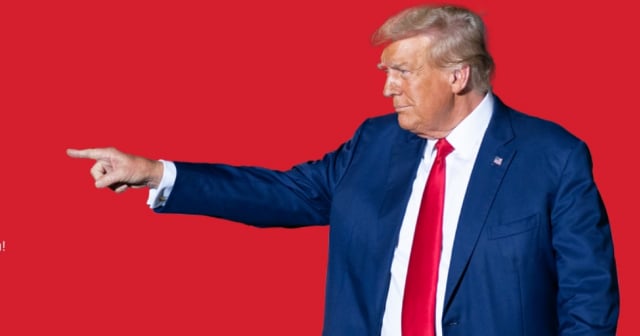Donald Trump participated this Wednesday in a forum with Hispanic voters who are still undecided about whom to vote for in the elections on November 5, and among the questions he answered was one related to his previous statement that Haitian immigrants eat dogs and cats.
The question was asked by José Saralegui, a 67-year-old Mexican resident in Arizona, who self-identified as a Republican but is now "undecided."
Saralegui referred to what happened as "conspiracy theories," stating that the authorities in Ohio are reiterating that Haitians are not eating dogs and cats, and directly asked the former president if he believed that.
"That was something that was reported, I just said what was reported, and they were also eating other things that shouldn't be eaten... but well, all I do is report. I was there, we are going to go back, we will check again and I will be able to give you a report when I do, but well, that is what appeared in the newspapers. A lot was reported," said Trump, giving credit and reaffirming his previous position.
However, the Republican candidate did not stop there, and next made a whole argument against small cities in the United States that have suddenly been overrun by thousands of migrants, something he says cannot happen.
"As for Springfield, it is a city of 52,000 people and they have added almost 30,000 migrants to the city. If you are someone who lives there in Springfield, Ohio, and suddenly you can no longer access a hospital, your children can no longer access a school, you can no longer buy groceries, you can't pay the rent, if any of those things happened, it would be a disaster for you and you wouldn't like that," he added.
"We want our people to be healthy and safe and for them to be happy. Springfield is a perfect example: you have a beautiful, small city with no problems, and suddenly 32,000 people arrive in that city, most of whom don't even speak the language, they don't speak it, and what they are doing is looking for interpreters," she specified.
Trump went even further, and what started as a question about dogs and cats turned into a reaffirmation of his anti-immigrant policy.
"You can't just arrive and destroy. You can't put 32,000 people in a city of 50,000 in such a short period of time and expect everything to work well. It’s a total disaster. The people who live there want to move somewhere else. We cannot let that happen in the cities of this country. We cannot allow it, it's not sustainable," he concluded.
In September, during the presidential debate with Kamala Harris, Trump claimed that in Springfield immigrants were hunting and eating ducks, cats, and stray dogs.
After the flood of criticism, the former president not only did not back down, but he also began posting on his Instagram profile a series of images created with Artificial Intelligence in which he was seen "rescuing" pets.
In one of them, a feline was holding a sign that said "Kamala hates me."
In another, she appeared with two dogs with the slogan "Vote for Trump."
Trump's claims arose from social media, where his followers began sharing stories about Haitian immigrants in Springfield, Ohio, who were allegedly stealing and hunting pets and wild animals like ducks and geese for food.
The situation escalated to the point that political figures, such as Senator Ted Cruz, shared memes with the message: “Please vote for Trump so that Haitian immigrants don't eat us,” accompanied by images of cats.
The Springfield News Sun clarified that local police had not received reports of stolen pets, and that the story had emerged in a Facebook group, where a man claimed that "the friend of the neighbor's daughter" had lost her cat and found it being dismembered by a Haitian neighbor.
What do you think?
COMMENTFiled under:
